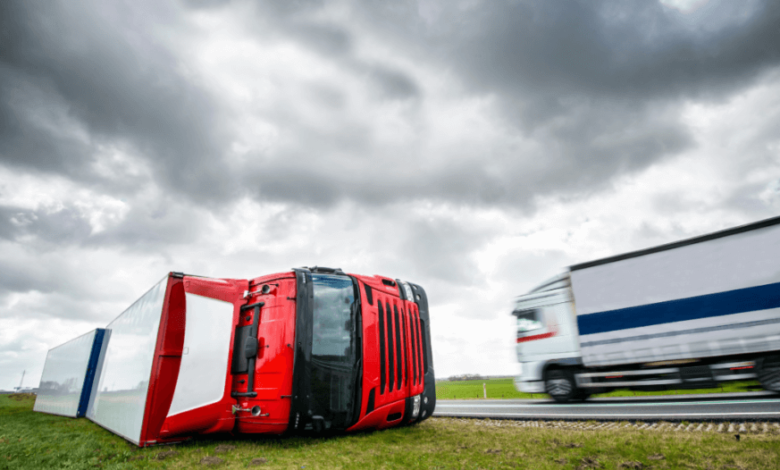What Causes Most Jackknife Accidents in Georgia?

Jackknife accidents in Georgia cause serious issues for drivers. These incidents occur when a truck’s trailer swings out, forming a sharp angle with the cab. This situation often leads to roadblocks and severe mishaps. The primary causes include sudden braking, slippery roads, and improper loading. Drivers sometimes misjudge stopping distances, especially during poor weather. This mistake increases the risk of losing control. Additionally, unbalanced cargo can make trailers harder to manage, leading to skidding. Maintaining appropriate speeds and ensuring proper loading reduces these risks significantly. But even with precautions, accidents happen. Understanding these causes helps you stay informed and prepared. After any accident, always get legal advice to ensure your rights and responsibilities are clear. Immediate action is crucial to address the aftermath effectively. Stay aware and cautious to protect yourself and others on the road. By knowing the causes, you contribute to safer travel in Georgia.
Contributing Factors to Jackknife Accidents
Jackknife accidents are often caused by a mix of driver error, weather conditions, and mechanical failures. Each of these factors can independently trigger an accident, but together, they create a higher risk. The following are the primary contributors:
- Driver Error: Inexperienced or fatigued drivers may brake too hard or make sudden maneuvers, causing the trailer to swing out.
- Weather Conditions: Rain, ice, and snow make roads slippery, increasing the risk of skidding. It’s important to check weather forecasts and stay updated with the National Weather Service.
- Mechanical Failures: Faulty brakes or worn-out tires can make it difficult to maintain control, increasing accident risks.
See also: How Law Enforcement Uses Surveillance Footage In Investigations
Preventing Jackknife Accidents
Prevention measures focus on proper maintenance, careful driving, and load management. Here are key strategies to prevent these accidents:
- Regular Maintenance: Ensuring brakes and tires are in good condition is essential. Regular checks minimize mechanical failures.
- Safe Driving Practices: Keeping safe distances and reducing speed during adverse weather reduces accident risks.
- Proper Load Management: Ensure loads are balanced and secured. This improves trailer control and reduces skidding.
Data Insights: Jackknife Accidents in Georgia
Understanding the frequency and circumstances of jackknife accidents in Georgia can guide prevention efforts. The table below illustrates data from recent studies.
| Year | Total Jackknife Accidents | Weather-Related | Driver Error | Mechanical Failures |
| 2020 | 150 | 60 | 70 | 20 |
| 2021 | 170 | 65 | 80 | 25 |
| 2022 | 160 | 70 | 65 | 25 |
Impact on Road Safety
Jackknife accidents not only endanger truck drivers but also other road users. These incidents cause traffic disruptions and potential injuries. A single accident can block multiple lanes, leading to extensive delays. Reducing these accidents means fewer disruptions and a safer environment for everyone.
Taking Action
If you’re involved in or witness a jackknife accident, knowing the steps to take is important. Ensure safety first: call emergency services, and check for injuries. Document the scene with photos if possible. This information can be crucial when you later get legal advice. Reporting the incident accurately helps authorities investigate and prevent future incidents.
Conclusion
Understanding the causes of jackknife accidents in Georgia allows for better prevention and response. By taking proactive measures, you reduce risks and contribute to a safer road network. Stay informed, be cautious, and prioritize safety to protect yourself and others.






